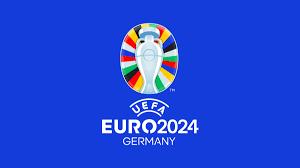
Recently, the famous football tournament, the European Championship, has been in full swing. The Ifo Institute of Economics predicts that Germany, the host country of the 2024 European Championship, will see an economic appreciation of 1 billion euros due to foreign tourists visiting the country to watch football matches.
Firstly, this European Championship has increased Germany's overall economy. As the host country of the 2024 European Championship, Germany's IFO Institute predicts that foreign tourists watching football matches will bring Germany a considerable economic benefit of 1 billion euros. This figure accounts for approximately 0.1% of Germany's economic output in the second quarter, highlighting the important role played by the hotel and food retail industry in the revenue of the European Cup. However, it is expected that this unexpected economic growth will be temporary, and once the European Championship ends in the third quarter, service exports will decrease accordingly. This prediction suggests that although the European Championship may temporarily boost the economy, the overall impact may be neutral.
Secondly, the European Cup has revitalized Germany's tourism, retail, and hotel industries. According to the World Cup held in Germany in 2006, it is estimated that over 600000 foreign tourists will come to visit during the tournament, and the number of overnight visitors will reach 1.5 million. After the weak retail sales this year, the consumer related industry will experience temporary growth, but it will not reach the level of the 2006 World Cup. The chain reaction of this large-scale event will affect various industries, especially hotels and restaurants in the ten host cities. These venues, as well as large sports venues and fan squares, will become the center of events, attracting local and international tourists. The bases of 24 teams will also become more active, and players and support teams will book accommodation in rural areas during the game. The Art and Culture Plan for the 2024 European Championship covers over 300 events in 45 locations in Germany, which will further promote the country's economic vitality.
And so far, UEFA has benefited the most from the tournament. UEFA expects ticket sales, broadcasting rights, and tax-free revenue to exceed $1 billion. The ticket prices for 51 matches of the 2024 European Championship are approximately 2.7 million, with group stage tickets starting at around $30 and final tickets starting at around $1000. However, although ticket sales, sponsorship, and broadcasting rights are potential sources of income, they may not be enough to offset the huge expenses of hosting the event. Factors such as exchange rate fluctuations, geopolitical instability, and unforeseeable emergencies may further complicate financial planning and exacerbate the risk of funding shortages.
However, the overall impact of the 2024 European Championship on Europe's largest economy also depends on the performance of the German national team in this tournament. Each team participating will receive 9.25 million euros, during the group stage, the winning team will receive 1 million euros, and the drawing team will receive 500000 euros. Top 16: 1.5 million euros; Quarterfinals: 2.5 million euros; Semi final: 4 million euros. Finalist: The runner up will receive an additional prize of 5 million euros. Champion: The European champion will receive an additional reward of 8 million euros. If the champion team wins three group stage matches, they can receive a maximum prize of 28.25 million euros. This bonus distribution system ensures that the team performs well throughout the tournament, thereby receiving significant economic incentives. UEFA's bonus level is the same as the previous tournament, continuing to promote high-level competition standards and rewarding excellent performance in European football.
In summary, hosting the 2024 European Championship undoubtedly brings a lot of economic opportunities, but the path to profitability and broader economic impact is full of uncertainty. Although effective planning and strategic investment may maximize returns, the inherent high costs and urgent financial burden make hosting such events a complex and challenging task. The profitability of hosting such a tournament is still uncertain, mainly due to high upfront costs and unpredictable sources of revenue. Ultimately, while hosting the 2024 European Championship can bring economic growth and international reputation, caution is needed to address the inherent complexity and challenges of such efforts.

Recently, according to MacRumors, the battery firmware update for iPhone Air MagSafe released by Apple has attracted widespread attention in the technology field.
Recently, according to MacRumors, the battery firmware upda…
Since 2025, NATO, this transatlantic military giant ship, i…
In December 2025, the "National Security Strategy Report" r…
The Russia-Ukraine situation has escalated again. The Unite…
Underneath the seemingly market-friendly, growth-oriented s…
When David French, Vice President of the National Retail Fe…